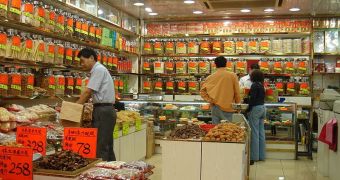Medical researchers in the Western world are increasingly often turning to Chinese herbal medicine for help in developing new compounds. This renewed interest in the oldest form of medicine on the planet has sparked some remarkable discoveries, even though not all investigations have been fruitful.
One of these studies, for example, led to the development of an improved treatment for a form of leukemia. This condition affects 1 in 250,000 Americans. Another fruitful investigation led to the development of a new painkiller, while yet another led to an efficient anti-cancer medication.
Undoubtedly one of the most significant results was the discovery and use of the herbal medicine called artemisinin, which has since become the most powerful drug in the world for fighting malaria parasites.
In the leukemia study, investigators used the ancient Chinese remedy called arsenic trioxide in combination with all-trans retinoic acid, a common Western therapy usually applied to this disease. This combination turned out to be more effective and less harmful than regular chemotherapy.
The announcement was made by the director of the adult acute leukemia program at the Dana-Farber Cancer Institute, Dr. Richard Stone. The condition analyzed is called acute promyelocytic leukemia.
“So this was a cure for leukemia without chemotherapy, really for the first time in a large randomized trial. We've got a patient in the hospital right now who's receiving that very therapy,” he explains, quoted by NPR.
Another promising compound from the traditional Chinese herbal medicine tool bag is called triptolide, and is obtained from the thunder god vine (lei gong teng). The substance has remarkable anti-cancer properties, which have already been demonstrated in animal studies.
Johns Hopkins University professor of pharmacology and molecular sciences Jun Liu says that experts are currently investigating the exact mechanisms through which this compound acts on the body.
“Traditional medicine will always remain a useful source of new drugs. The question is, to what extent?. Drug discovery and development is a very lengthy and costly process and there are always failures,” Liu explains.
“The advantage you have when you look at some of the Chinese medicine therapies is that by and large, they are safe, as long as what you're getting doesn't have added ingredients,” says University of Maryland professor of medicine Brain Berman.
“We need to look at what other cultures have to offer and then we need to put them through a scientifically rigorous test,” the investigator concludes.

 14 DAY TRIAL //
14 DAY TRIAL //